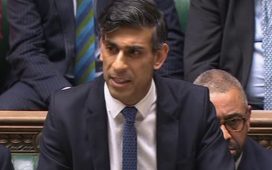Four out of five British universities are worried about the impact of crashing out of the EU without a deal, as vice-chancellors look to stockpile essential supplies ranging from chemicals to toilet paper.
A survey of members by Universities UK, which represents more than 130 higher education institutions, found that 80% of those responding said they were either “very” or “extremely” concerned about the impact no-deal Brexit will have.
While more than half of universities said they were fully or very prepared for no deal, the remainder admitted they were only “slightly” prepared. Vice-chancellors who spoke to the Guardian said they were most immediately concerned about shortages of essential chemicals and gases for their laboratories, while others were looking to stockpile bulk items such as food and toilet paper.
“If we run out of loo roll then we have to close and send everyone home, it’s as simple as that,” said one vice-chancellor, who added that such a scenario was unlikely.
Several universities said they were preparing to stockpile food to supply students in residence. Those with teaching hospitals as part of NHS trusts said they were most concerned about pharmaceutical and other medical supplies and have discussed contingency plans with their suppliers.
Many universities said they were more worried about the longer-term effects of a no-deal Brexit, especially in student recruitment and research funding.
The survey found that half of all universities have already seen an impact on applications from EU students, while almost 60% said they have lost existing or potential staff members to overseas rivals and directly attributed the losses to the prospect of a no-deal Brexit. More than half also said they were seeing changes in collaboration with overseas partners.
Vice-chancellors also voiced concern over the effort that obtaining visas for the 130,000 EU students at British universities would bring in the event of no deal.
Prof Julia Buckingham, president of Universities UK and vice-chancellor of Brunel University, said: “While the news that universities feel prepared for no deal in some capacity is reassuring, it is clear that the implications of exit under these circumstances remain largely unknown. It is in the government’s power to alleviate many of these concerns.
“Despite working tirelessly to offset the potential implications of no deal, such an outcome could leave an indelible footprint on the higher education landscape for years to come.”
Alastair Sim, the director of Universities Scotland, said: “As the countdown to 31 October looms and the possibility of no deal becomes increasingly likely, our universities are committed to mitigating, as much as possible within our gift, the worst possible consequences of no deal.”
Brexit was only briefly mentioned by Gavin Williamson, the education secretary for England, when he addressed the Universities UK annual conference last week. Williamson said officials were drawing up “a truly ambitious scheme if necessary” to replace Britain’s membership of the Erasmus student exchange.
Angela Rayner, Labour’s shadow education secretary, said the survey showed a no-deal Brexit would be disastrous for higher education, affecting student numbers, access to research funding and the future of the nearly one in five UK university academics who are EU nationals.
“The new education secretary has been unable to give universities even the most basic reassurance that he has any credible plan. That is why Labour will continue to take all necessary steps to stop Boris Johnson forcing us into a no-deal Brexit that no one voted for,” Rayner said.
A government spokesperson said: “This government is committed to making sure Britain is prepared for any circumstances related to Brexit, and we are pleased to see that universities are being diligent in their preparation for leaving the EU.
“In addition, we have committed to raise the investment in research and development and maintain the UK’s position as a science superpower in a post-Brexit world.”













